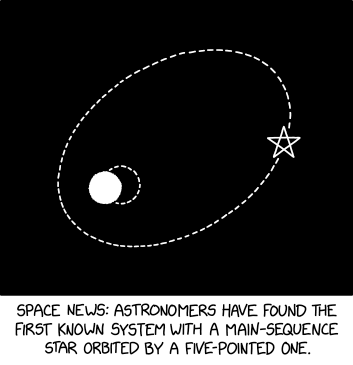I. AO3 STATISTICS ROUND-UP
2025 was a busy year for AO3! The site continued to see rising traffic, with Communications publishing an update on AO3 statistics from 2020-2025. In December, Support received 3,589 tickets, totalling to over 40,000 tickets received in 2025, an all-time high. Meanwhile, Policy & Abuse (PAC) received 6,357 tickets in December, totalling approximately 47,500 tickets in 2025. Check out PAC’s pie chart for more details.

In the first half of January, User Response Translation translated or betaed 32 ticket requests from Support and PAC.
Open Doors finished importing three archives in December: Absolution – The Inugrrrl Memorial Archive about the manga InuYasha, InDeath.net Fan Fiction about the In Death book series by J.D. Robb, and The Pinky and the Brain Page about the cartoon Pinky and the Brain. In total, Open Doors completed the imports of nine archives in 2025! They also announced the import of the Randall Morgan Memorial Archive, a Queer as Folk (US) fanfiction archive by the creator Randall Morgan.
In December, Tag Wrangling wrangled approximately 598,000 tags, or around 1,300 tags per volunteer. In total, they wrangled approximately 4,944,000 tags in 2025. They also continued work on handling “No Fandom” additional tags, publishing December and January news posts detailing recent changes. In total, Tag Wrangling published nine “No Fandom”-related news posts in 2025 covering around 399 new canonical “No Fandom” additional tags.
II. ELSEWHERE AT AO3
Accessibility, Design & Technology coordinated improvements to bookmark searches in the latter half of January, including the ability to filter bookmarks by word count. They also continue their work on performance improvements, bug fixes, and working with PAC and AO3’s spam detection service to address spam comments. In conjunction with Communications, they posted a December 2025 update on how to recognize and report AO3 spambots.
In January, Tag Wrangling updated their Fandom Tag Metatag guidelines, including clarifying when a fandom metatag should be made and when to merge closely related fandoms into one fandom tag. Check out the news post detailing the new policy.
As part of International Volunteers Day (IVD) 2025, Communications collected and batched answers to the IVD Q&A by committee, resulting in five committee-specific news posts highlighting Communications, Support, Tag Wrangling, Translation, and Volunteers & Recruiting. Answers across committees, along with additional responses not featured in the news posts, have been compiled in a separate AO3 work.
III. ELSEWHERE AT THE OTW
Fanlore ran an editing chat to close out 2025, and it was a lot of fun! They also began preparing for their annual IFD Fanlore Challenge and Femslash February event! Keep an eye on their Bluesky, Twitter/X, and Tumblr for announcements.
Legal answered many internal and external questions this month.
TWC is readying the publication of the two 2026 special issues: “Disability and Fandom” and “Gaming Fandom”. They also continue work on the two 2027 special issues: “Music Fandom” and “Latin American Fandoms”, and there continues to be a rolling deadline for submitting to TWC’s next general issue.
In January, Communications’ Fanhackers wrote about the Transformative Approaches to Fan Identity, and they began a multi-post survey of acafannish research and publishing resources.
IV. GOVERNANCE
In December, Board announced the resignations of two directors: Kathryn Solderholm and Erica Frank. We would like to thank Erica and Kathryn for their service as members of the Board, and wish them all the best in their future endeavours with the OTW.
In January, Board finalized and approved the OTW Procurement & Purchasing Policy. They and the Board Assistants Team (BAT) organised the first quarter of 2026 public Board meeting on January 18 which had 54 attendees. Minutes of this meeting will be available soon on the OTW website. Elsewhere, Board and BAT continued work on document review and archiving board statements, Code of Conduct tasks in conjunction with Organizational Culture Roadmap, and ongoing projects for mental health resources for volunteers, scheduling tools, public meeting best practices and volunteer retention in BAT. BAT also updated their OTW website committee page.
Organizational Culture Roadmap finalized a confidentiality policy in preparation for upcoming external recruitment.
V. OUR VOLUNTEERS
In December, Volunteers & Recruiting thanked all OTW volunteers on International Volunteer Day with their organization-wide email and graphics campaign. In January, they ran recruitment for Open Doors.
From November 22 to January 23, Volunteers & Recruiting received 355 new requests, and completed 378, leaving them with 52 open requests (including induction and removal tasks listed below). As of January 23, 2025, the OTW has 1,013 volunteers. \o/ Recent personnel movements are listed below.
New Subcommittee Leads/Workgroup Heads: Eevee (Internal Complaint and Conflict Resolution Lead) and megidola (Organizational Culture Roadmap Workgroup Head)
New AO3 Documentation Volunteers: Lulu S (Chair Trainee)
New Fanlore Volunteers: Elfie, Konsta Morales, Watts, and 1 other Graphic Designer
New Open Doors Volunteers: Addiebees, AviLine, feelyx, LeighR, Marie K, meservey66, MetaKass, miffmiff, Mort, pinkconstellations, SleepyJane, Spit, StormySea, Truendz, Vail, and 11 other Import Assistants
New Policy & Abuse Volunteers: megidola (Supervisor) and 1 Chair Track Volunteer
New Tag Wrangling Volunteers: Chelsea Cheyanne, inspiredstork, Sanity, will, and Yrindor (Supervisors)
New Translation Volunteers: Rhine and 1 other Chair Trainee; Arushi, athursdayschild, Eirinar, Linarii, Mira8, Niki K, Phoebe B, Pi, Rita P, and 12 other Translators
New TWC Volunteers: Fiona M, Yumi, and 3 other Layout Editors; and 2 Outreach and Communications Editors
New User Response Translation Volunteers: Eki, f0f8ff, HARRitte, Jules R, Laus, PanPan, rosings, zoy zauce, and 3 other Translators
Departing Directors: Erica Frank and Kathryn Soderholm
Departing Committee Chairs: 1 Communications Chair and 1 Elections Chair
Departing BAT Volunteers: 1 Volunteer
Departing Communications Volunteers: KW Ukuku (TikTok Moderator), Lori P (Graphics Volunteer), 1 Fanhacker Volunteer, and 1 Social Media Moderator
Departing Communications News Post Moderation Volunteers: 1 News Post Moderator
Departing Development & Membership Volunteers: 1 Graphic Designer, 2 Membership Data Specialists, and 2 Volunteers
Departing Fanlore Volunteers: 1 Discord Moderator, 1 Outreach Analyst, and 1 Policy & Admin
Departing Open Doors Volunteers: Pelagia and 1 other Administrative Volunteer, Wynne (Import Assistant), and 1 FCPP Intern
Departing Policy & Abuse Volunteers: 1 Volunteer
Departing Strategic Planning Volunteers: 1 Volunteer
Departing Support Volunteers: Nary and 22 other Volunteers
Departing Tag Wrangling Volunteers: Nary and 1 other Supervisor; Asas Carmesins, Bruno, Eevee, lianneder, Lily_Haydee_Lohdisse, McBangle, Sayornis, Tea Huimyni, and 10 other Wranglers
Departing Translation Volunteers: Teelee (Task Assistant); Illiterations and 4 Translators
Departing TWC Volunteers: Melanie Kohnen (Review Editor); Courtney Lazore and 1 other Proofreader; and 1 Symposium Editor
Departing User Response Translation Volunteers: 1 Translator
Departing Volunteers & Recruiting Volunteers: 1 Senior Volunteer and 2 Volunteers
For more information about our committees and their regular activities, you can refer to the committee pages on our website.
Erin Shields You, Always opened at the Berkeley Street Theatre on Wednesday night in a production directed by Andrea Donaldson. It’s the story of the rlationship between two sisters. The elder, Liz (Maev Beaty), is a high achiever; solid academics, law school, husband and two children. The younger, Delia (Liisa Repo-Moretell), is a college dropout, singer songwriter and a vigorously promiscuous Lesbian (or maybe bisexual) even though there’s only one orgy in Brazil. In spite of, or because of their differences they are very close.
The play opens with an argument; the subject doesn’t matter, in which Delia accuses Liz of being controlling and Liz accuses Delia of being over dramatic. This argument will reoccur, word for word, until the very end and serves as a kind of Leitmotif for the relationship. It’s a short and intense scene fragment. There will be many of them; one after another, as we skip backwards and forwards in time from early childhood through all the phases of life and relationships to an ending that is increasingly foreshadowed.
It’s very cleverly constructed. Each fragment is short, tight and essential and the seamless transitions are signalled by subtle but unmissable lighting cues. It also builds emotionally. It’s pretty light, and often very funny, to begin but gets darker, then darker still, while still providing flashes of laugh out loud humour. One constant theme is the girls’ childhood fantasy games featuring a wolf and a princess in a forest (but no mermaids; elder Liz forbids mermaids). Just as things get really dark there’s a completely incongruous, beautifully costumed mime sequence of the princess and wolf story. It’s hilarious and very disturbing in the context. And then comes the final reprise of the argument as Liz makes her final decision; the one only she can make. Which Delia cannot construe as being about herself.
The execution is as tight as the plotting. Timing is spot on. The chemistry between the two women is palpable and there’s vital but not overbearing support from Andre du Toit’s lighting and Thomas Ryder-Payne’s sound design. It’s subtle, funny, and builds almost imperceptibly to a heartbreaking ending. Definitely worth seeing.
You, Always by Erin Shields plays at CanStage’s Berkeley Street Theatre until February 22nd.
Photo credits: Dahlia Katz
Used in Louisiana Creole cooking, usually as a garnish added after cooking, especially to gumbo. I've never had it, but I can attest that young sassafras leaves are tasty and spicy. Sassafras is also used in another food: rootbeer is flavored using the bark of sassafras roots (or rather was, as the bark contains safrole, which is a possible carcinogen and so banned from commercial use). Filé is from French filé, past participle of filer, which has many meanings but the relevant sense is to turn into threads/become ropy -- filé is a thickener, useful when ocra is not in season.
---L.
From Tim Leonard:
VHM: It was only twenty or so years ago that I learned about the word "beater" for a cheap, high-mileage, beat-up car that still performs reasonably well.
Selected readings
(I've included the Mandarin subtitles for most of my questions below, so there's no need to know Cantonese. And I've also converted everything to simplified characters — but you can scroll down and click the spoiler cut at the bottom to see the same post with traditional characters.)
( General translation questions )
( Historical terms and titles )
( Literary stuff )
( A couple of Cantonese questions )
And, since I can't really read simplified and can't guarantee that everything got converted correctly above:
Click here for the same questions, but with traditional characters instead of simplified.
- Some general translation questions:
- What does "你真是吃了大蒜了" mean? In context, it seems like the speaker is saying something like "you've really lost your mind," but I've tried googling and can't find any reference for the meaning of "eating a garlic." (The Cantonese is the same, "你真係食大蒜喇.")
- "你把我的頭都給問大了" – Is this like "You're making my head spin [with all these questions]"?
- Speaking about a scroll on a table, someone says "我有一次不小心掀了一下." Does this mean he casually/carelessly picked it up? Or opened it? (The Cantonese sounds like "我有一次唔覺意[挈?]咗一下.")
- The context for this one is that Character A is being hired as the nursemaid of a (kidnapped) baby, and wants to know if she'll be living in the same room with the baby. She asks"我是不是跟他住一間房?" and is told (by the guy who hired her, who is also trying to sleep with her) "不一定。有時候也許會換到其他房子。" My question is, is there any way to know whether the answer means "sometimes the baby might be put in another room" or "sometimes you might be moved to another room"?
- For this question I'm mostly wondering how the grammar works in the last part of this sentence: "朝中文武百官,人人得而誅之." Google Translate says this means "All civil and military officials in the court have the right to execute him," which makes sense in context (so I assume it's correct), but I don't understand how 得而誅之 translates to "have the right to execute [him]." Does this follow some kind of idiomatic/literary grammar construction?
- Context for this one is the Emperor saying he's already taken precautions against an enemy; he says he's arranged everything, and as soon as his enemy makes any move, "朕就可以仁至義盡." I'm not sure how to understand 仁至義盡 here, as it seems to mean showing kindness/benevolence? Is the phrase being used sarcastically?
Some questions about historical terms or phrases: - Is there an established/common way to translate 國丈 (a term for the Emperor's father-in-law/the father of the Empress)?
- Similar question: how should I translate 總管 as a title, e.g. when people address 王總管? "Steward Wang"?
- And another: how should I translate 嫡妃 (meaning the legitimate/primary/first wife)? In context, the Crown Prince is offering to marry a woman and make her his 嫡妃, so my guess would be "Crown Princess"?
- Two terms with第 that I'm not sure how to translate: 太史第 and 上書第. It seems 太史 can mean Court Astronomer, Imperial Historian , or Grand Scribe, so is 太史第 like "The Grand Scribe's Residence" or maybe "The Grand Scribe's Office"?? And is 上書第, like... "The Memorial Scribe's Manor"? "The Memorials Office"??
- I think I've got this, but I just want to check my translation: "戶部侍郎兼軍機處行走" → "Vice-Minister of Revenue and a member of the Grand Council" (I can't find any dictionary references for 行走 meaning "member," but Google Translate gives this meaning, and it seems to make sense in context).
- Can I translate "三條胡同" as "Third Street"? Context is someone saying they're not sure where a certain house is located ("不知是在三條胡同那兒").
- In one scene, the Emperor orders for his son to be taken back to "溫寢宮." This term seems to refer to the residence/quarters of the Emperor, so since it's the Emperor himself speaking, can I translate it as something like "take him back to my palace"?
- Does "紫玉樓" refer to a specific place and/or is it some kind of metaphor? It's mentioned in two different scenes. From context, my best guess is that it refers to the residence of the Prince Consort (駙馬爺), but I can't find any confirmation of this. In one scene, the Princess (the Prince Consort's wife) is visiting her father-in-law's villa, and he says "請把這兒當作紫玉樓一樣" (Cantonese: "請當呢度係紫玉樓一樣"), and his sentiment seems likely to be "make yourself at home." In another scene, the same Princess is offered a villa to live in, but declines, asking"住在這兒和住在紫玉樓有什麼分別呢?" i.e. "what's the difference between living here and living in 紫玉樓?" But I can't tell if 紫玉樓 refers to her actual home or if it has some broader/metaphorical meaning.
- Is there (or historically was there) a river called 多羅大河? A general says "我軍已經進入多羅大河," but I can't seem to find any reference for a "Duoluo River." Am I missing something, or is this a fictional river name the writers invented?
- I suspect the writers just screwed this up, but it baffles me so I've got to ask about it. In one scene, Qianlong has a map that was drawn by the Kangxi Emperor. On the map is written "康熙甲子手御筆" (which, as far as I can tell, should mean the map was drawn in 1684, the only Jiazi year that happened in Kangxi's lifetime). After reading these words aloud, Qianlong comments, "這是皇阿爺十幾歲時劃的" (Cantonese: "係皇阿爺十幾歲嗰陣時劃嘅"), which should mean Kangxi (Qianlong's grandfather) drew the map when he was in his teens... but this makes no sense? Kangxi would have been 30 in 1684. A few minutes later, Qianlong comments that it's been sixty-some years since the map was drawn, which should mean the map was drawn sometime between 1665-1675 (because the present-day setting has to be 1735, as Qianlong is about to take the throne). Is there some possible way "康熙甲子" could refer to a year between 1665-1675? Or did the writers just throw "康熙甲子" into the script because it sounded cool/historical, with no regard for what year it actually referred to??
Literary questions - There's a scene where one of the characters (an irreverent teenager who is abusing his tutor by writing poetry on him with a brush) quotes from the poem 愛蓮說, but changes the lines slightly. The original poem says "牡丹之愛,宜乎眾矣," but he changes the words to "牡丹之愛宜『平稟』矣"). I can't understand the meaning of the changed line. Any help on how to translate this??
- A woman sends her lover a breakup letter, and also returns to him a broken jade pendant that was his gift to her. Her letter opens with the line "玉碎珠還." This doesn't seem to be a common phrase in itself, but there seem to be several similar common phrases (玉碎珠沉, 珠沉玉碎, 玉碎珠沒), and per Google they usually refer to something beautiful irreparably lost, especially a woman who has died. What I don't understand is how to interpret 還 in this version. "The jade is broken, the pearls are returned"? Or does 還 have some other meaning I'm missing?
A couple of questions specifically about Cantonese terms - The context here is a guy who is being invited to share a meal with some people he holds a grudge against; he declines and says what sounds like "費事食完之後背脊骨落" or maybe "費事食完老子有背脊骨落." The Mandarin subs say "免得吃了以後反胃," which is quite different, but I have no idea what "背脊骨落" means...
- I don't even know how to transcribe this one. XD A girl (who has just gone out shopping at some street stalls with the Emperor) tells her husband "我同皇上去咗[騎騎嘰?]" — I'm pretty sure the first two syllables are ke4 ke4 (probably 騎騎?), the third could be gi/git/ki/kit? Seems like a high or mid tone? The girl's husband seems confused by the term, but she doesn't really explain what it means when he asks. (The Mandarin subs just say "我跟皇上去逛街".)

This theme runs for the entire month. If you have any questions, just ask!
Including specifically, again, mai tais. Originally orgeat was flavored with barley instead of almonds, which explains the etymology: from (around 1750) French (no surprise given the pronunciation), from Middle French, from Provençal/Old Occitan orjat, from ordi/orge, barley, from Latin hordeum, barley -- which last (TIL) also gave us (via Catalan orxata) the drink horchata (also no longer made with barley) and (via Italian) the pasta orzo (which only looks like barley). (More brackets for the heck of it.)
---L.
Hi all!
I'm doing some minor operational work tonight. It should be transparent, but there's always a chance that something goes wrong. The main thing I'm touching is testing a replacement for Apache2 (our web server software) in one area of the site.
Thank you!

Thanks, WikiMedia!
This came up in the definition of mai tai, as one of its ingredients, so finally explaining it. The laraha is a bitter orange, descended from Seville orange, which were introduced to the Caribbean island of Curaçao in the early 1500s. The island became a Dutch possession in 1627, and it became fashionable in 17th century Netherlands to create liquors from exotic flavorings from overseas, and Lukas Bols (1652–1719), then head of a family run distillery, used the aromatic oil from Curaçao oranges to make one -- normally colorless, he dyed it blue to make it even more exotic. Named after the island, of course, which is probably a Portuguese transcription of its name in a mainland Arawakan language such as Lokono (so it would have fit into that theme - ah well).
---L.
From François Lang:
The storm that Mother Nature visited upon the Washington DC area was unusually difficult because several inches of snow were followed by several more inches of sleet. This combination resulted in a top layer of solid ice which has been dubbed "snowcrete".
The same storm hit us in Philadelphia, so I know exactly what "snowcrete" is like.
Frustrated by city response, D.C. residents step up to help clear ‘snowcrete’:
As mounds of stubborn snow remained on some residential streets and other areas, many Washingtonians found their own ways of digging out, whether through charity, camaraderieor commerce.
WP (January 31, 2026)
By Brittany Shammas, Michael Laris and Ruby Mellen
I don't know about the city's response in DC, but in the towns and suburbs around Philadelphia, in most cases whole armies of plows were out in force, and they did a respectable job, although the snow was more than man and machine could handle efficiently right away.
Officials in D.C. and its surrounding suburbs have stressed the extraorinary nature of the Jan. 25 storm, which began with 4 to 7 inches of snow and was followed by up to 4 inches of sleet. The amount of sleet — snow that falls, melts and refreezes into ice pellets before hitting the ground — was more than had hit the region in at least three decades, according to the Capital Weather Gang. Brutally frigid temperatures in the days since has kept things from melting.
I realize that people were frustrated and badly inconvenienced by the snow and sleet, but I am in sympathy with the public servants who had to move all of that heavy, cumbersome snow and ice.
As François cautioned, "Be careful walking on that snowcrete. I've slipped and fallen on my derrière a couple times already."
The snowcrete was bad enough, but I think even worse were the unremitting weeks of sub-freezing temperatures. Truly painful.
This is the fiercest winter of my whole life. I can understand Punxsutawney Phil running back down in his burrow this morning, but I hope that he doesn't stay there for more than six weeks!
Selected readings
- "Schneewind" (1/30/26)
- "'No word for X meets snowcloning" (11/20/20
- "Linguistic relativity: snow and horses" (4/15/25)
- "Snowclone" — Language Log played a major role in the conceptualization and popularization of this word
- "Punxsutawney and Maxatawny" (1/21/25)
Description: ![]() ygorarepairs is a mini bang event that focuses on rare pair ships for all Yugioh series (including crossovers), open to writers, artists, and image & video editors.
ygorarepairs is a mini bang event that focuses on rare pair ships for all Yugioh series (including crossovers), open to writers, artists, and image & video editors.
This year's mini bang is in regular bang order. Authors have drafted fics for their chosen rare pair. Artists will claim at least 1 fic to use as inspiration for fanart. Partners will collaborate and share their fanworks together during the posting period for this event. Please read our specifications page for more details about expectations for event works.
Artists can see summaries and complete the claim submission form here:
 https://docs.getgrist.com/forms/nmJe1ZZzHoDu1qWfkKNGeM/10
https://docs.getgrist.com/forms/nmJe1ZZzHoDu1qWfkKNGeM/10
Dates (see Schedule for more info):
Signups: Nov 1-Nov 30 (writers may start immediately)Check-in #1 (writers only): Dec 21-23Check-in #2 (writers with claim pitch): Jan 30-Feb 1- Claims: Feb 2-6
- Claims assigned: Feb 7/8
- Artist WIP share: Feb 20-21
- Check-in #3 (all participants): Mar 6-7
- Posting prep: Mar 12-14
- Posting: Mar 15-Apr 4
Toronto City Opera’s third annual Macina Voice Competition is set for February 21, 2026 at Church of the Redeemer. The finalists are:
- Camila Montefusco – Mezzo-Soprano
- George Theodorakopoulos – Baritone
- Hillary Tufford – Mezzo-Soprano
- Jaclyn Grossman – Soprano
- Jamal Al Titi – Baritone
- Marion Germain – Soprano
- Nicholas Kluftinger – Tenor
- Olivia LaPointe – Soprano
The competition will be judged by:
- Wendy Nielsen, Soprano & Head Vocal Consultant Canadian Opera Company Ensemble Studio, Associate Professor in Voice, University of Toronto
- Tom Diamond, Stage Director & Senior Acting Coach, Canadian Opera Company Ensemble Studio
- Morgan Reid, Artist Manager, Dean Artists Management>
- Guillermo Silva-Marin, General Manager, Toronto Operetta Theatre & Voicebox:Opera in Concert
- Jennifer Tung, Conductor, Artistic Director, Toronto City Opera
Additionally, the live audience will have the opportunity to vote for the Audience Prize.
It’s the usual competition format of two arias per contestant with piano accompaniment and it’s a good line up; at least based on the singers I’ve heard. If you are a fan of singing competitions it’s worth a look. Tickets are $20 and available from this link.
The full press release with contestant bios etc… 2026 Macina Voice Competition Press Release






